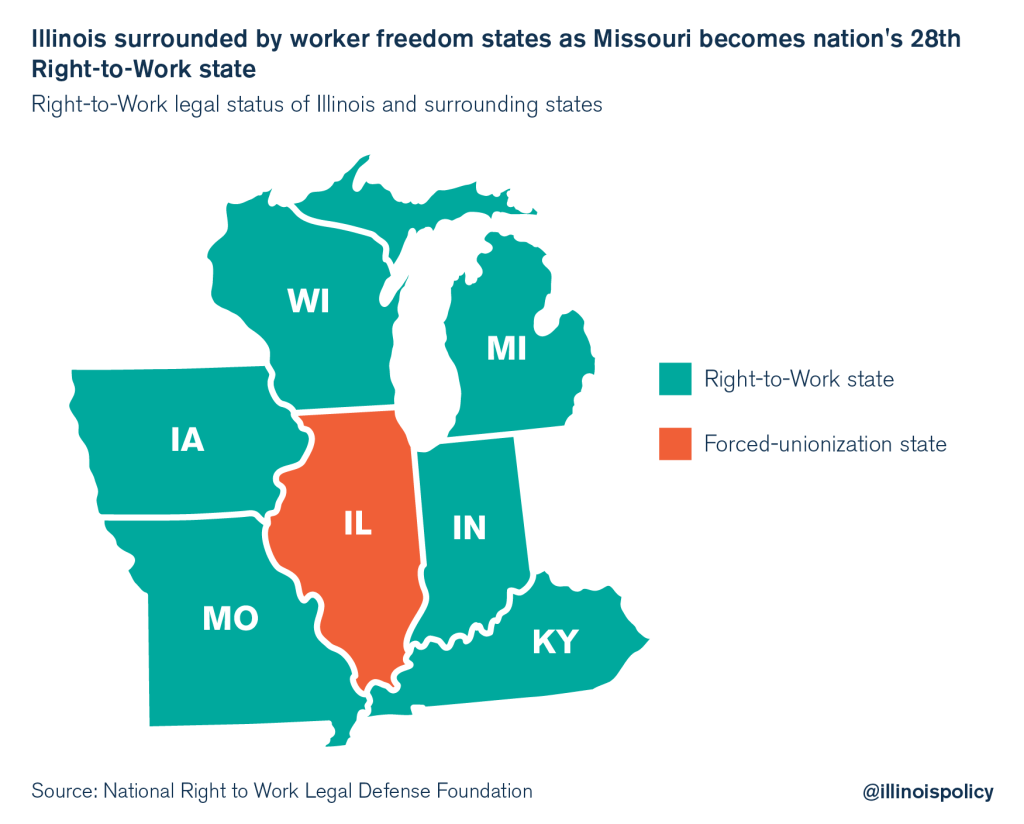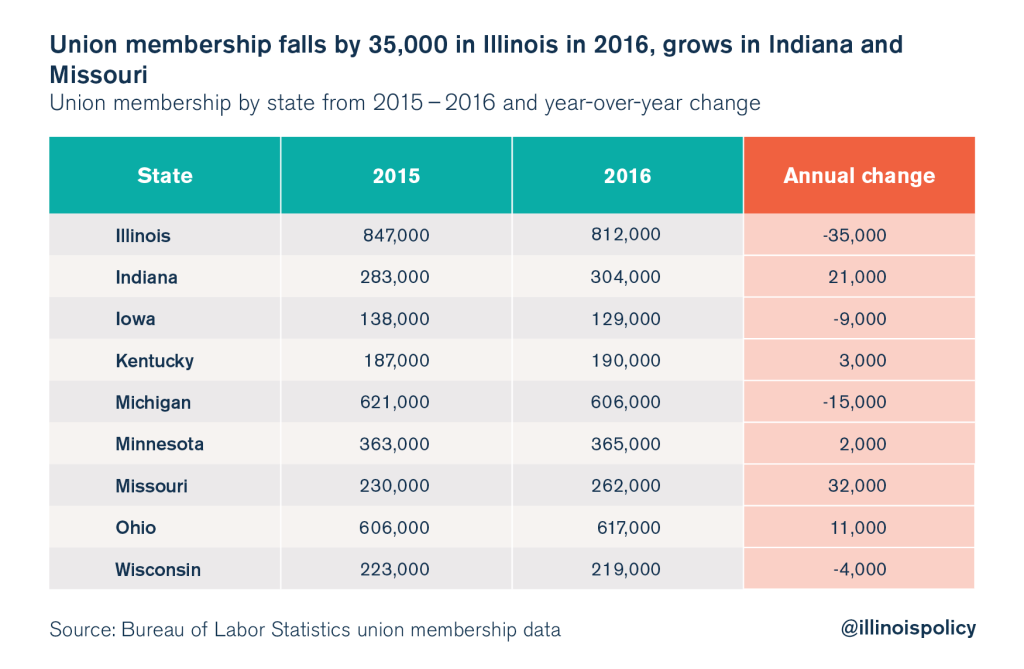Illinois has largest loss of union membership in region, Indiana and Missouri have largest gains
Illinois’ declining union membership is but one more reminder that the state’s anti-jobs business environment hurts the broad population of job-seekers, whether they are union or non-union.
Illinois is surrounded by Right-to-Work states. The worker freedom revolution is spreading across the Midwest and making Illinois’ neighbors more competitive for new jobs and investments. Meanwhile, Illinois is being left behind, a holdout state stuck with outdated labor policies.

As a result, Illinois is being passed over for new job creation. Union membership in Illinois is declining. In 2016 alone, union membership fell by 35,000 in Illinois, the worst loss in the region.
States like Missouri and Indiana, on the other hand, saw substantial growth in union membership according to an annual Bureau of Labor Statistics report on union membership.

Illinois’ declining union membership is yet another reminder that the state’s anti-jobs business environment hurts the broad population of job-seekers, whether they are union or non-union. In the private sector, there first needs to be business investment and hiring before there is a workforce to unionize. Too little investment and hiring is occurring in Illinois, forcing many job-seekers to stream across nearby borders.
Illinois needs to rethink its economic development strategies and labor policies, because the status quo has continually failed the state’s workforce. Giving out tax credits on an ad hoc basis is not a strategy for long-term, sustainable growth. Rather, the state needs broad-based reforms and a lower tax burden.
Right to Work is just one issue to address to attract new investments and jobs. Workers’ compensation and unemployment insurance are major costs that affect the entire workforce and drive away jobs. Furthermore, occupational licensing affects 1.6 million Illinois workers and disproportionately affects the opportunities of low-income workers.
Finally, Illinois needs to put its fiscal house in order by addressing the state’s major spending drivers – public pensions and monopoly bargaining powers for government unions – in order to bring down the state’s tax burden over time. Surrounding states are moving ahead with all of these reforms, and Illinoisans are being left behind to either fight for a shrinking number of blue-collar jobs or to leave the state altogether.
